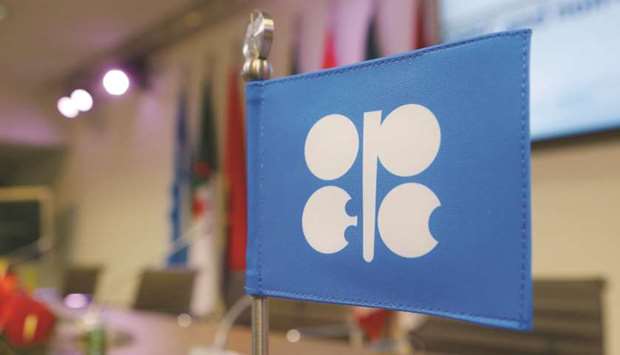Opec faces a “serious challenge” if it wants to defend oil prices next year, as fuel-demand growth could slow further and rival supplies continue to grow, according to the International Energy Agency.
The IEA – which advises major economies – could lower its forecasts for demand growth again as the economic backdrop continues to weaken, Neil Atkinson, head of the agency’s oil industry and markets division, said in a Bloomberg television interview Wednesday. The agency lowered its projections in its monthly report last week.
At the same time, there is “a wave of new supply growth” from the US, Brazil and the North Sea, Atkinson said. As a result, it will be tough for the Organization of Petroleum Exporting Countries and its allies – who have cut production this year to prevent a surplus – to buoy prices in 2020, he said.
“There is a lot of supply coming into the market, and that suggests that the Opec countries and Russia, who is working with them to manage the oil market, will face a serious challenge as we head into 2020 to keep prices at the level with which they feel comfortable,” Atkinson said.
Brent crude futures traded below $59 a barrel in London on Wednesday, below the levels needed by most members of Opec to cover government spending.
The group and its partners will do “whatever it takes” to prevent another oil slump, Opec secretary-general, Mohammad Barkindo said in London last week.
The IEA, which is based in Paris, trimmed its 2020 estimate for global oil-demand growth by 100,000 barrels a day to 1.2mn a day last week.
The IEA incorporates forecasts from the International Monetary Fund, which on Monday reduced its outlook for global economic growth next year to 3.4% from 3.5%. The IMF anticipates that this year’s expansion will be the weakest in a decade.
“What the IMF numbers are doing is confirming a picture we have seen as 2019 has developed, and we are now looking at a possibility, no more than that, that the demand outlook could get weaker,” Atkinson said.
Still, oil-demand data in recent months has been surprisingly strong, and so “the jury is still out as to whether we are definitively going to slash oil demand growth any further,” he added.

Opec and its partners will do u201cwhatever it takesu201d to prevent another oil slump, Opec secretary-general Mohammad Barkindo said in London last week
